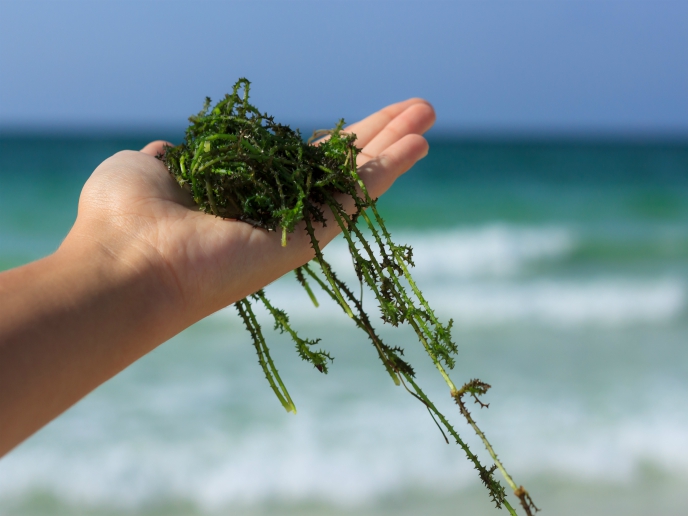Novel seaweed products to combat iodine deficiency disorders
Iodine intake in Europe is low. In Germany alone, iodine deficiency is responsible for annual healthcare costs of nearly EUR 900 million. Furthermore, the market for iodine products is expected to steadily increase until 2020, with Europe being the main regional market. The EU-funded Blue Iodine II (Boost BLUE economy through market uptake an innovative seaweed bioextract for IODINE fortification II) project produced new cost-effective seaweed iodine products to tackle iodine deficiency in three main target groups: children (aged from 7 to 14), pregnant and breastfeeding women, and older people. These groups have a particular need for iodine intake: there's no product on the market specifically for children and older people, and no clear leader in products for natural iodine support to pregnant women or those that breastfeed. "We wanted to differentiate our product by specialising in the development of high-quality seaweed products based on protein enrichment with natural iodine that's rich in essential amino acids," says project coordinator Dr João Dionísio. He explains that the seaweed is indigenous to Portugal's Macaronesian region where the project facilities and fish farms are located. It's naturally high in iodine and protein content, and very stable. The seaweed is ideal for processing as regards iodine extract production. Favourable conditions conducive to seaweed development Land production under sterile conditions generates seedlings that ensure a continuous supply of seaweed for production. Offshore cultivation allows a greater quantity of seaweed. Project partners successfully developed and maintained propagules in the lab for one algae species. They carried out algae growth in small reactors that showed a good growth rate and produced enough raw material for replication and lab analysis. Then, they transferred the seaweed propagules to seawater tanks. Researchers employed special facilities for seaweed cultivation in land-based tanks, and their proximity to the sea makes seawater available all year at minimal seawater-pumping costs. Seaweed production near offshore fish farms exploited waste from gilt-head (sea) bream which is rich in nutrients, and helped to avoid waste discharge into the marine environment. Innovative biorefinery procedure for optimised production Scientists also developed a biorefinery process to thoroughly exploit all the seaweed biomass using cold press extraction and filtering techniques to obtain purified extracts. Market analysis and feedback from potential distributors revealed the need to demonstrate the iodine extract's benefits. In addition, clinical trials are under way with human subjects in order to validate product quality. The consortium is evaluating potential customers in target markets in Germany, Spain, France and Italy. The seaweed iodine product (IODOBEM) has several novel features. "It's a natural extract that provides iodine and a broad range of nutrients, proteins, vitamins and minerals beneficial to human metabolism," claims Dr Dionisio. The Blue Iodine II product offers clear benefits. "The extracted proteins possess essential amino acids and stabilise iodine during assimilation. Moreover, IODOBEM also avoids an overdose of mineral elements — namely sodium chloride — to give a natural product with clear advantages over products of inorganic origin."
Keywords
Blue Iodine II, iodine, seaweed, iodine deficiency, seawater, iodine extract



